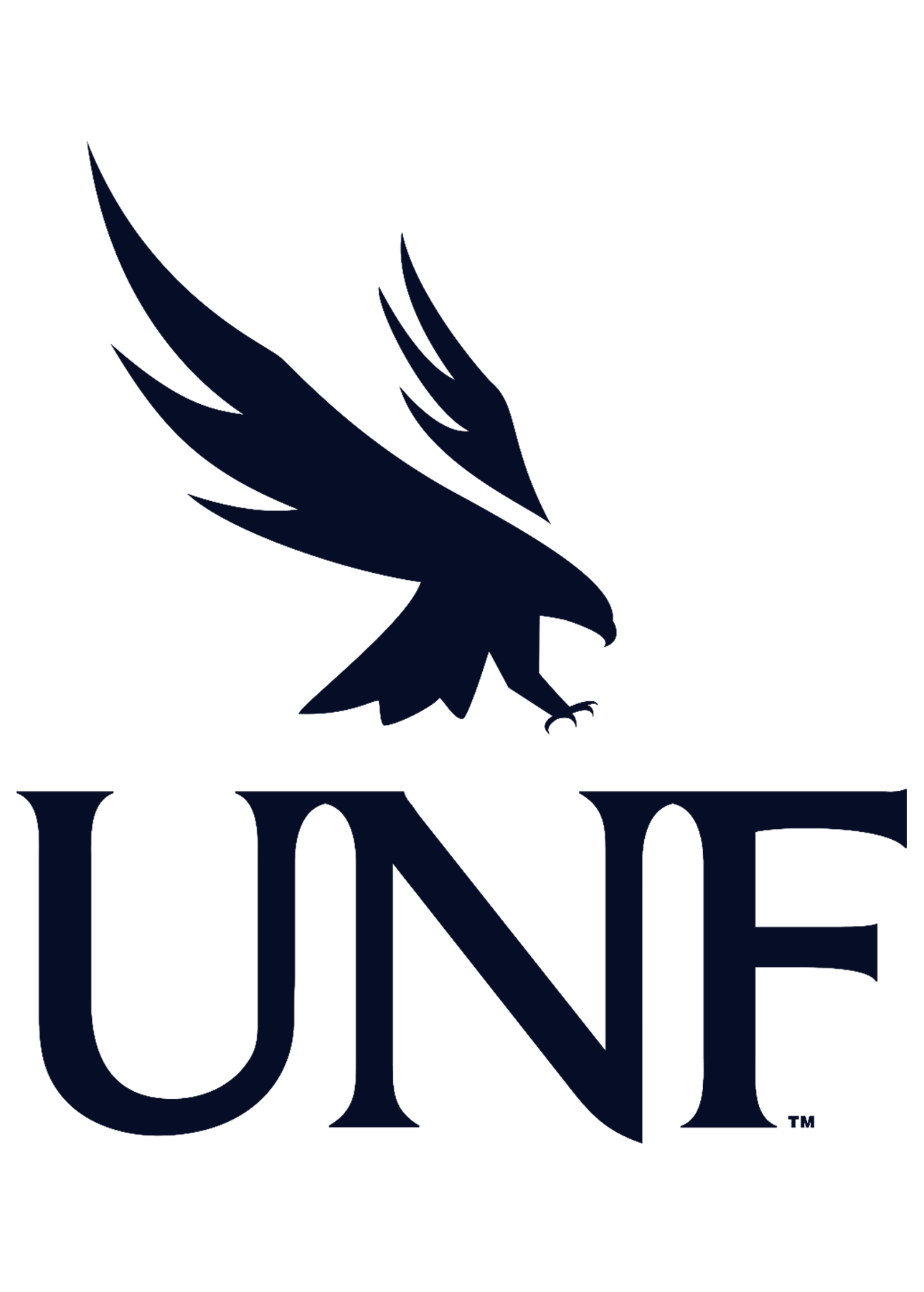Sport management degrees are interdisciplinary programs that apply business functions to the sports industry and prepare students for a variety of career opportunities. Graduates can earn a median salary of $127,830 in roles such as sports marketers or brand managers, or they can pursue other fast-growing careers as coaches, scouts, athletic directors, or event coordinators.
Institutions offer sports management programs at undergraduate and graduate levels. Undergraduate programs require about four years of study, with tuition and fees averaging $14,688 yearly or $27,673 with room and board. Graduate programs cost about $20,513 yearly and typically require at least two years to satisfy graduation requirements.
Why Trust Us
The Intelligent.com Higher Education Team is dedicated to providing students with independent, equitable school and program rankings and well-researched resources. Our expert-driven articles cover topics related to online colleges and programs, paying for school, and career outlooks. We use data from the U.S. Department of Education’s College Scorecard, the National Center for Education Statistics, and other reputable educational and professional organizations. Our academic advisory team reviews content and verifies accuracy throughout the year for the most current information. Partnerships do not influence rankings or editorial decisions.
- Analyzed over 2,000 national, accredited, and nonprofit colleges and universities
- 800+ rankings pages are reviewed and updated yearly
- Content is informed by reputable sources, surveys, and interviews with academic advisors and other experts
- Over 100 data points are reviewed for accuracy and quality throughout the year, including sources
How we rank schools
Our list features the best Sports Management degree programs at top colleges nationwide. Each school featured is a nonprofit, accredited institution — either public or private — with a high standard of academic quality for post-secondary institutions.
We evaluated each school’s program on tuition costs, admission, retention and graduation rates, faculty, reputation, and the student resources provided for online students. We collected data from trusted sources like the National Center for Education Statistics, individual school and program websites, school admissions counselors, and other data sources. Then, we calculated the Intelligent Score on a scale of 0 to 100 based on the following criterion:
Academic Quality:
- Admission rate versus enrollment rate
- Retention rate of students who return after year one
- Accreditation status (regional and programmatic)
- Nonprofit status, both private and public institutions
Graduation Rate
- Overall graduation rate
- Total number of currently enrolled students, including diversity metrics
- Student-to-faculty ratio
Cost and ROI
- In-state and out-of-state per-credit tuition rates and fees
- Required credits to graduate
- Earning potential after graduation
- Availability of federal student loans, scholarships, and other financial aid options
Student Resources
- Available student services for online-only and hybrid programs
- On-campus amenities like tutoring centers and the number of libraries
Read more about our ranking methodology.
Best 50 Accredited Sports Management Programs
FiltersInstitution Type
Status
- Intelligent Score
- Alphabetically By University Name
- Acceptance Rate
- Enrollment
- In-state Graduate Tuition
- Out-of-state Graduate Tuition
- In-state Undergraduate Tuition
- Out-of-state Undergraduate Tuition

Troy University
Intelligent Score: 97.48In-state: $7,800
Out-of-state: $15,600
In-state: $7,650
Out-of-state: $7,650
SAT: 935-1105
ACT: 18-25
In-State: $408
Out-of-State: $816
On-Campus, Online
Commission on Sport Management Accreditation
123

University of Louisville
Intelligent Score: 97.11In-state: $11,966
Out-of-state: $28,312
In-state: $13,260
Out-of-state: $13,260
SAT: 1050-1270
ACT: 21-28
Resident: $527
Non-Resident: $1,208
On-Campus, Online
Commission on Sport Management Accreditation
120

Winthrop University
Intelligent Score: 96.61In-state: $15,306
Out-of-state: $29,636
In-state: $15,318
Out-of-state: $15,318
SAT: 940-1150
ACT: 19-25
Resident: $639
Non-Resident: $1,236
On-Campus
Commission on Sport Management Accreditation
120

University of North Florida
Intelligent Score: 96.39In-state: $3,996
Out-of-state: $16,799
In-state: $8,570
Out-of-state: $8,570
SAT: 1040-1230
ACT: 20-27
Resident: $213
Non-Resident: $693
On-Campus
Commission on Sport Management Accreditation
120

Southeast Missouri State University
Intelligent Score: 95.55In-state: $6,779
Out-of-state: $12,951
In-state: $5,373
Out-of-state: $5,373
SAT: N/A
ACT: N/A
In-State: $271
Out-of-State: $501
On-Campus
Commission on Sport Management Accreditation
120

University of Southern Indiana
Intelligent Score: 95.35In-state: $8,716
Out-of-state: $20,252
In-state: $10,246
Out-of-state: $10,246
SAT: 980-1170
ACT: 19-25
Resident: $289
Non-Resident: $704
On-Campus, Online
Commission on Sport Management Accreditation
120

Arkansas State University
Intelligent Score: 93.34In-state: $5,232
Out-of-state: $10,800
In-state: $4,986
Out-of-state: $4,986
SAT: 1000-1220
ACT: 20-26
In-State: $299
Out-of-State: $552
On-Campus, Online
Commission on Sport Management Accreditation
120

Central Michigan University
Intelligent Score: 93.27In-state: $12,296
Out-of-state: $22,881
In-state: $14,223
Out-of-state: $14,223
SAT: 1000-1210
ACT: 20-26
$498
On-Campus
Commission on Sport Management Accreditation
120

Davenport University
Intelligent Score: 93.07In-state: $19,320
Out-of-state: $19,320
In-state: $15,696
Out-of-state: $15,696
SAT: N/A
ACT: N/A
$928
On-Campus, Online
International Accreditation Council for Business Educatio
120

Shorter University
Intelligent Score: 93.04In-state: $22,380
Out-of-state: $22,380
In-state: $12,600
Out-of-state: $12,600
SAT: 950-1160
ACT: 18-24
$566
On-Campus, Online
Commission on Sport Management Accreditation
120

Bowling Green State University
Intelligent Score: 91.58In-state: $9,463
Out-of-state: $17,452
In-state: $8,017
Out-of-state: $8,017
SAT: 1020-1210
ACT: 20-26
Resident: $477
Non-Resident: $810
On-Campus
Commission on Sport Management Accreditation
122

Slippery Rock University
Intelligent Score: 91.1In-state: $7,716
Out-of-state: $11,574
In-state: $9,288
Out-of-state: $9,288
SAT: 980-1150
ACT: 19-25
In-State: $322
Out-of-State: $643
On-Campus
Commission on Sport Management Accreditation
180

East Stroudsburg University of Pennsylvania
Intelligent Score: 90.11In-state: $8,288
Out-of-state: $16,576
In-state: $10,062
Out-of-state: $10,062
SAT: 900-1110
ACT: 16-23
Resident: $322
Non-Resident: $644
On-Campus
Commission on Sport Management Accreditation
120

University of Indianapolis
Intelligent Score: 89.79In-state: $30,888
Out-of-state: $30,888
In-state: $38,452
Out-of-state: $38,452
SAT: 960-1170
ACT: 18-25
$1,434
On-Campus
Commission on Sport Management Accreditation
120

North Greenville University
Intelligent Score: 88.43In-state: $22,050
Out-of-state: $22,050
In-state: $11,400
Out-of-state: $11,400
SAT: 950-1210
ACT: 18-24
$800
On-Campus
Commission on Sport Management Accreditation
120

Lancaster Bible College
Intelligent Score: 87.67In-state: $26,330
Out-of-state: $26,330
In-state: $10,470
Out-of-state: $10,470
SAT: 980-1200
ACT: 18-22
$995
On-Campus, Online
Commission on Sport Management Accreditation
122

Wilmington College
Intelligent Score: 87.64In-state: NA
Out-of-state: NA
In-state: NA
Out-of-state: NA
SAT: 950-1170
ACT: 18-24
$1,000
On-Campus
Commission on Sport Management Accreditation
124

York College of Pennsylvania
Intelligent Score: 86.5In-state: $19,670
Out-of-state: $19,670
In-state: $12,870
Out-of-state: $12,870
SAT: 990-1190
ACT: 19-26
$695
On-Campus
Commission on Sport Management Accreditation
121
How to Choose a Sports Management Program
Choose your area of study
A sports management degree can unlock access to various careers, so it’s crucial to consider your career and education goals when selecting the ideal program.
Both a Bachelor of Business Administration (BBA) and a Bachelor of Science (BS) in sports management provide students with an overall business education in marketing, finance, economics, and management within the sports industry.
BBA and BS graduates have overlapping career opportunities, such as athletic directors, event coordinators, and brand managers. However, BBA grads may lean toward managerial or operations roles, while BS grads may focus on data or finance-related positions such as marketing analyst, operations manager, or contract analyst.
Students who progress to a master’s degree in sports management may choose a focus or specialty, such as sports ethics or public relations, and graduates often progress to upper management and leadership roles in major organizations. A doctoral degree in sports management develops students’ research and scholarly abilities to prepare them for careers as professors, researchers, or other academic professionals and executive sports industry roles.
Students can concentrate on certain sports management specialties. These may include:
- Media
- Event management
- Law
- Economics
- Ethics
Research schools and programs
Once you’ve chosen your educational path, research schools and programs that suit your goals and criteria. Visit the websites of schools and programs you’re interested in, and contact admissions advisors at each institution to get more information about the program. School websites and social media can also direct you to virtual or in-person campus tours and information sessions.
Keep accreditation in mind as you weigh your options. Regional accrediting organizations such as the New England Commission of Higher Education and Northwest Commission on Colleges and Universities verify that schools provide a high-quality education to their students. You can use the Department of Education’s Database of Accredited Postsecondary Institutions and Programs (DAPIP) to check on a school’s accreditation status.
Regional accreditation can help ensure a consistent educational experience. Other institutions recognize credentials from regionally accredited institutions, making transferring credits easier when switching schools or programs. Accreditation can also affect eligibility for financial aid, as only accredited institutions qualify. Employers may prefer applicants with accredited education to confirm their qualifications.
Prepare for tests and applications
Sports management admission requirements for undergraduate and graduate programs vary between schools but generally follow standard requirements for most programs. These include:
- Application form and fees
- Secondary school transcript
- In-progress undergraduate transcript for transfers
- Letter(s) of recommendation
- Personal essay or statement
- Resume or CV
- SAT or ACT scores
- GRE or GMAT scores
Undergraduate admissions may prefer applicants with a science or math-focused background or equivalent post-secondary credits. Prospective majors may also need to complete a year of general studies and prerequisite business, liberal arts, or science courses before applying to the sports management program.
Master’s programs usually require an undergraduate degree, and Ph.D. programs may require a master’s degree. Speak to advisors from respective admissions departments to confirm specific eligibility, deadlines, documentation, and other important information.
Select your program
Even if the educational outcome is similar, sports management programs aren’t equal. Some may better suit your needs depending on curriculum, cost, location, course delivery method, or specialty options.
For instance, private institutions typically have higher tuition fees than public schools, which may influence student decisions if their financial resources are limited. Many students find program delivery and overall logistics vital to their education — part-time, online, or hybrid courses can help support those in the workforce or with other obligations, while in-person options can offer unique networking and interaction advantages. Academic advisors can provide program-specific details and help students weigh their options.
Determine how you’ll pay for your degree
Calculate tuition and fees and factor in expenses such as books and materials, housing, transportation, and other needs throughout the program. Speak to your chosen institution’s financial aid office to verify fees, inquire about average student costs, and confirm financial aid eligibility. Regardless of your financial resources, apply for the Free Application for Federal Student Aid (FAFSA) to access need-based federal loans, scholarships, grants, and other assistance.
Outside of FAFSA, students can earn merit-based or other types of grants, scholarships, and assistance from institutions, foundations, private organizations, and other groups. Employers may also offer tuition assistance benefits to eligible workers who are attending school.
What Can You Expect From a Sports Management Program?
Sports management undergraduate and graduate programs help students gain an in-depth understanding of the role of sports in society and as a function of business. Coursework typically covers general business topics, including economics, policy, research and data analytics, law and ethics, strategy, and finance, and how they intersect with sports management.
Full-time bachelor’s degrees usually take four years to complete. Throughout the program, students complete a certain number of credits in core business classes and either core science or liberal arts classes, depending on the degree type. Students may also participate in work co-ops, internships, and seminars.
Over two years of full-time study, master’s programs involve several core courses and focus options. Students may also complete internships for professional development and networking via industry events, seminars, and panels. Ph.D. programs vary in duration, but most take three to five years. Master’s and Ph.D. candidates typically complete independent research and dissertation projects.
Potential courses you’ll take in a sports management program
- Sports Finance: Finance courses explore financial management, business structures, and planning and forecasting processes. Students may learn about inventory management, taxes, and other financial topics in a sports industry context.
- Sports Law and Ethics: This course explores legal fundamentals and their application to the sports industry. Course content typically includes case studies and discussions on general ethics, trademark law, personal injury law, and contract law.
- Sports Marketing: Sports marketing courses focus on how traditional and evolving marketing principles apply to the sports industry. Topics may include sponsorships and partnerships, public relations, and sports consumer research.
- Sports Analytics: Students learn about data research and analysis models in finance, statistics, and math and how they relate to sports business strategy. Content may include athlete valuation, ticket pricing, and consumer analysis.
- Sport and Society: This class explores contemporary issues and social implications in sports, including discrimination, gender inequity, and crime.
Sports Management Degree Frequently Asked Questions
How do I apply to a sports management degree program?
Most programs provide an online admissions portal where you can submit your application. In addition to a completed application form and fees, students typically must include transcripts, a personal statement, a CV, letters of recommendation, and relevant test scores.
Admissions portals should guide you through the process, but an admissions counselor can assist if you prefer an offline application or need further clarification.
How much does a sports management degree cost?
Undergraduate tuition and fees average $14,688 yearly, and graduate programs average $20,513 per year. That doesn’t include room and board, which can increase annual undergraduate costs to $27,673.
These figures don’t necessarily reflect your final costs. Scholarships, grants, and loans can reduce the amount you pay upfront, and in-state vs. out-of-state, course delivery method, location, and other variables can affect your budget.
How long does it take to earn a sports management degree?
Based on full-time studies and the typical requirement of 120 credits for graduation, most sports management bachelor’s degrees take about four years. Depending on the curriculum, part-time vs. full-time enrollment, self-pacing options, and project and credit requirements, master’s programs take between 18 months and several years. Ph.D. programs typically don’t exceed six years.
